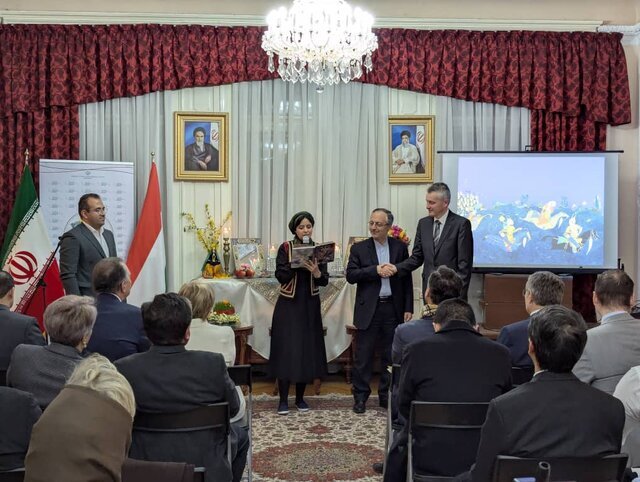Tehran – A special celebration of Knowles, a Persian New Year, was held at the Embassy of the Islamic Republic of Iran in Budapest, coinciding with the arrival of the spring and the 1404 solar year.
The event also commemorates the 100th anniversary of diplomatic relations between Iran and Hungary, reported by Isna on Friday evening.
The celebration gathering was attended by ambassadors and diplomats from the nations of Nowruz, including Pakistan, Turkey, Kyrgyzstan and Uzbekistan, along with representatives from Russia, China, Belarus and Japan, as well as ambassadors and diplomats.
Additionally, university professors, academics and some professors from the Iranian community in Hungary were also involved.
Iran’s Hungarian ambassador, Morteza Moradian, welcomed guests, extended the New Year’s greeting and highlighted the deep ties between the two countries.

Nowruz not only celebrates the New Year, but also a shared cultural heritage listed by UNESCO, offering an opportunity to further strengthen the cultural and economic ties between Iran and Hungary, Moradian said.
Peter Jakab, director of the Middle East and North Africa, Hungarian Foreign Ministry, also said he described the centuries-old relationship between Tehran and Budapest as robust. He reaffirmed Hungary’s commitment to expanding cooperation with Iran, particularly in the fields of culture, economics and science.
One of the highlights of the event was the bilingual Nakkari performance, an ancient Iranian storytelling art form, by Iranian performer Bahalejahand.

She also told the mythical origins of Knowles and the stories of Bijan and Manije in Feldouzi’s Shaname, captivating the audience both in Persian and English. Her performance was accompanied by live casino solos by an Iranian student living in Budapest.
Guests also had the opportunity to experience the traditional Haftsin table, the iconic center of Knowles, and participate in the Hafez divination ritual. The warm and intimate atmosphere of the event served as a cultural bridge between the two countries.
According to Isna, Jahandoust played Naqqali for playing another event at Eotvos Lorand University, and he highly praised it among various faculties, especially among students and faculty of Iranian research. The performance was praised by the head of the Iranian Research Division, who praised Shahname and Knowles as important elements of Persian culture and called for greater academic attention to Iran’s literary heritage.

During the university event, Jahhandor also spoke about the universal message of peace and humanism in Feldosi’s poetry. The program featured readings from the grave of Hafez, a collection by Hungarian poet Csokonai Vitéz.
Knowles, showing the arrival of spring and the renewal of nature, are recognized by UNESCO as an intangible cultural heritage of humanity and are praised by many countries in Central and Western Asia.
morning

